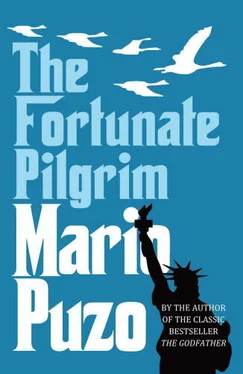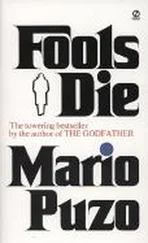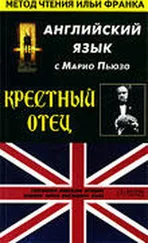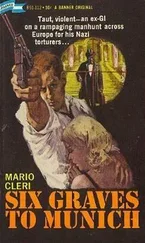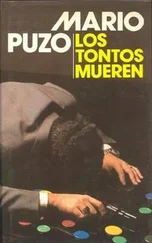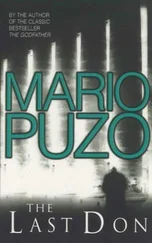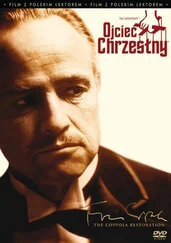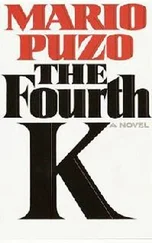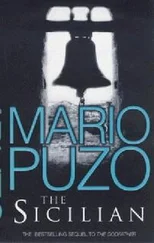Signora Le Cinglata excused herself, saying she must fetch another gallon of wine and another bottle of anisette. She went out of the kitchen, through the rooms of the long railroad flat, and to the farthest bedroom. She had a door there. Larry followed her, mumbling that he would help her carry the bottles, as if she would be surprised or angry at his youthful presumption. But when she heard him lock the door behind them, she bent over to take a huge purple-colored gallon jug from among the many standing against the wall. As she did so, Larry gathered up her dress and petticoats in both his hands. She turned in her enormous pink bloomers, her belly bare, and gave a laughing protest: “ Eh, giovanetto. ” The large cloth buttons of her dress slipped from their holes and she lay on her back on the bed, the long, sloping, big-nippled breasts hanging out, the loose bloomers pulled aside. In a few great blind savage strokes Larry finished and lay on the bed, lighting a cigarette. The signora, buttoned up and respectable, took the purple jug in one hand and the clear, slender bottle of anisette in the other and together they returned to the customers.
In the kitchen, Signora Le Cinglata poured wine and touched glasses with the same hands that had fondled him. She brought Larry a fresh glass of cherry soda, but finicky that she had not washed, he would not drink.
Larry got ready to leave. Signora Le Cinglata followed him to the door and whispered, “Stay, stay for the night.” He gave her his big smile and whispered back, “Hey, my mother would ask for stories.” He played this role, the helpless dutiful son, when it pleased him to escape.
He did not go home. He went around the corner and back to the stable. He made his bed on straw and a horse blanket, using his saddle for a pillow. The restless moving of the horses in their stalls was soothing to him; the horses could not disorient his dreams.
Lying so, he reviewed his future, as he did many nights, as all young men do. He felt a great power. He felt himself, knew himself, as one destined for success and glory. In the world he lived in he was the strongest of the boys his age, the handsomest, the most successful with girls. Even a grown woman was his slave. And tonight he had beaten a grown man. He was only seventeen, and in his youthful mind the world would remain static. He would not become weaker, or the world stronger.
He would be powerful. He would make his family rich. He dreamed of wealthy young American girls with automobiles and large houses who married him and loved his family. Tomorrow before work he would go up to Central Park on his horse and ride along the bridle paths.
He saw himself coming down Tenth Avenue, a rich girl on his arm and everyone looking at him with admiration. The girl would love his family. He was not snobbish. He never thought they could be looked down upon, his family, his mother and sister, his friends. For he considered them all extraordinary, since they were really part of him. He had a truly innocent mind, and, sleeping in the smelly stable, cowboylike on a prairie of stone, fresh from his conquests of man and woman, Larry Angeluzzi never doubted his happy destiny. He slept in peace.
IN THE ANGELUZZI-Corbo family only the children—Vincent, Gino, and Sal, tangled together in the one bed—dreamed real dreams.
CHAPTER 3

IN THE MORNING Octavia rose as the last freshness of the night air burned away before the rising August sun. She washed in the kitchen sink, and, walking back through the corridor of rooms, saw that her stepfather was not in bed. But he slept little and was an early riser. The other empty bedroom proved she had been right; Larry had not come home at all. Sal and Gino were uncovered, their sexual parts showing through the BVD underwear. Octavia covered them with the rumpled bed sheet.
Dressing for work, she felt the familiar despair and hopelessness. She choked on the warm summer air, on the closeness of the sweet warm odor of sleeping bodies. The morning light too clearly showed the cheap battered furniture, the faded wallpaper, the linoleum with black patches where its colored skin had worn through.
At such times she felt doomed: she was afraid that one day she would wake on a warm summer morning as old as her mother, in a bed and home like this, her children living in squalor, unending days of laundry, cooking, dishwashing before her. Octavia suffered. She suffered because life was not elegant, human beings not completely separate. And it sprang from a few dark moments in a marriage bed. She shook her head angrily, yet fearfully, knowing how vulnerable she was, knowing that one day she must lie on that bed.
CURLY BLACK HAIR combed, wearing a cheap blue and white frock, Octavia left the tenement and stepped onto the blue-slate sidewalk of Tenth Avenue. She walked the already burning pavement to her dressmaking shop on Seventh Avenue and 36th Street, going past the Le Cinglatas’ out of curiosity perhaps to see her brother.
Lucia Santa woke shortly afterward, and her first realization was that her husband had not come home. She rose instantly and checked the closet. His twenty-dollar shoes were there. He would be back.
She went through the other bedroom to the kitchen. Bravo. Lorenzo had not come home. Lucia Santa’s face was grim. She made coffee and her plans for the day. Vincenzo started to work in the bakery, good. Gino would have to help her with the janitor work, good. A punishment for his father, who shirked. She went to the hall and picked up the bottles of milk and the great loaf of Italian bread thick as her thigh, tall as a child. She sliced off heavy chunks and spread one with butter for herself. She let the children sleep.
It was another time of day she loved. The morning still fresh, the children about to waken and everyone else out of the house, herself strong for the duties of living.
“ QUE BELLA INSALATA ”—what beautiful salad—the words rose up to the sleeping children at their moment of awakening. They all sprang out of bed, and Gino looked out the window. Below was the hawker, standing on the seat of his wagon as he held up to the sky and the watching windows a pearly green lettuce in each outstretched hand. “ Que bella insalata, ” he said again, not asking anyone to buy, only asking the world to look at beauty. Pride, not cajolement, in his voice, he repeated his cry each time his horse took a mincing step along the Avenue. In his wagon were boxes of onions dazzling white, great brown potatoes, bushels of apples, bouquets of scallions, leeks, and parsley sprigs. His voice rose rich with helpless admiration, disinterested, a call to lovers. “What beautiful salad.”
At breakfast Lucia Santa instructed her children. “Listen,” she said, “your father has gone away for a little time. Until he comes back you must help. Vincenzo works in the panetteria. So you, Gino, will help me wash the stairs of the building today. Get me the clean pails of water, and wring the mop, and sweep if you prove not to be stupid. Salvatore, you can dust the bannisters, and Lena also.” She smiled at the two little children.
Vincenzo hung his head, sullen. But Gino looked at her with cool, speculative defiance. “I’m busy today, Ma,” he said.
Lucia Santa bowed her head to him politely. “Ah,” she said, “you are busy every day. But I’m busy too.” She was amused.
Gino pressed his advantage. He became very earnest. “Ma, I gotta get ice from the railroad today, I promised Joey Bianco. I’ll give you free ice before selling.” Then, with a stroke of genius, he added, “And Zia Louche too.”
Lucia Santa regarded him with an affection that made Vinnie jealous. Then she said, “Good, but remember my icebox must be filled—mine first of all.”
Читать дальше
